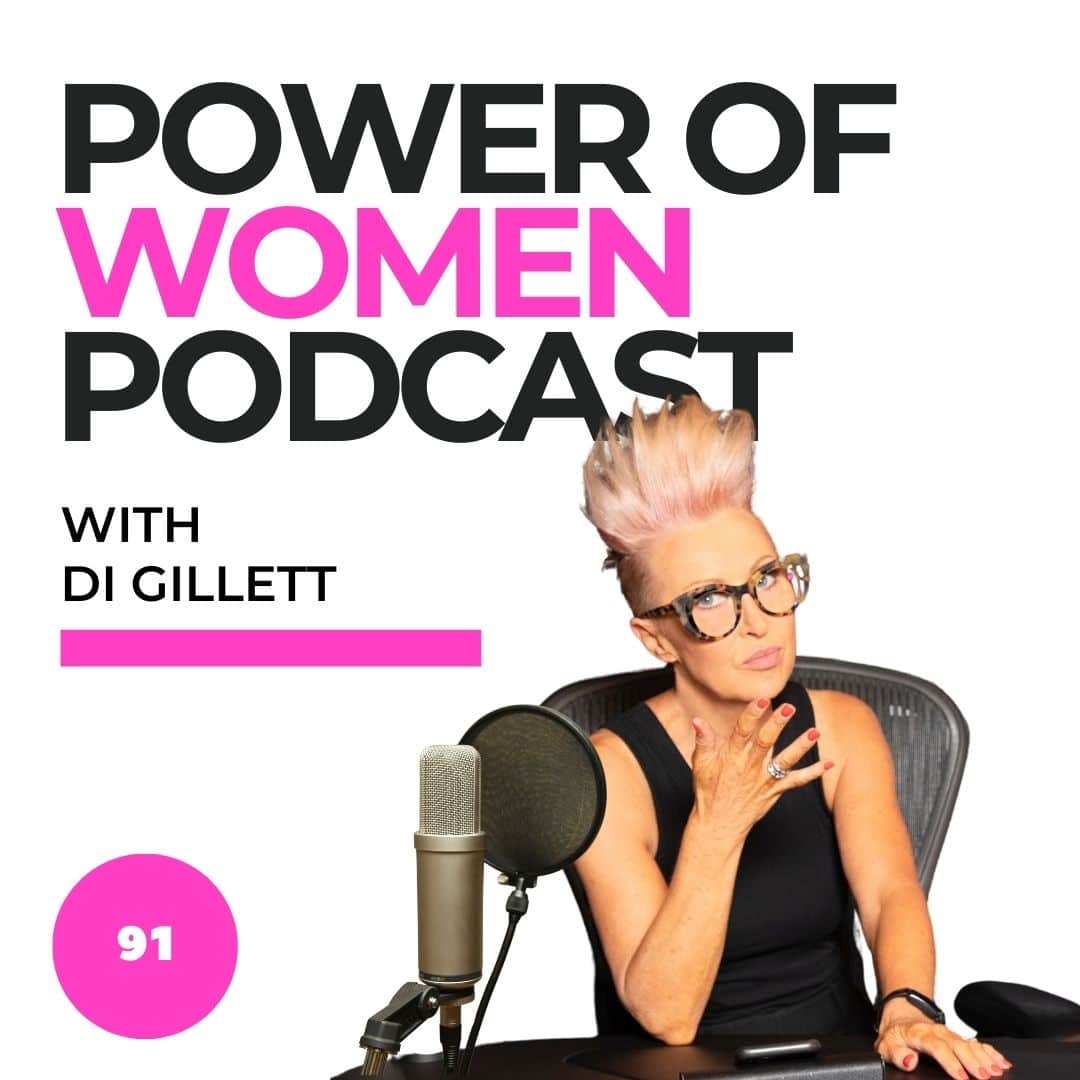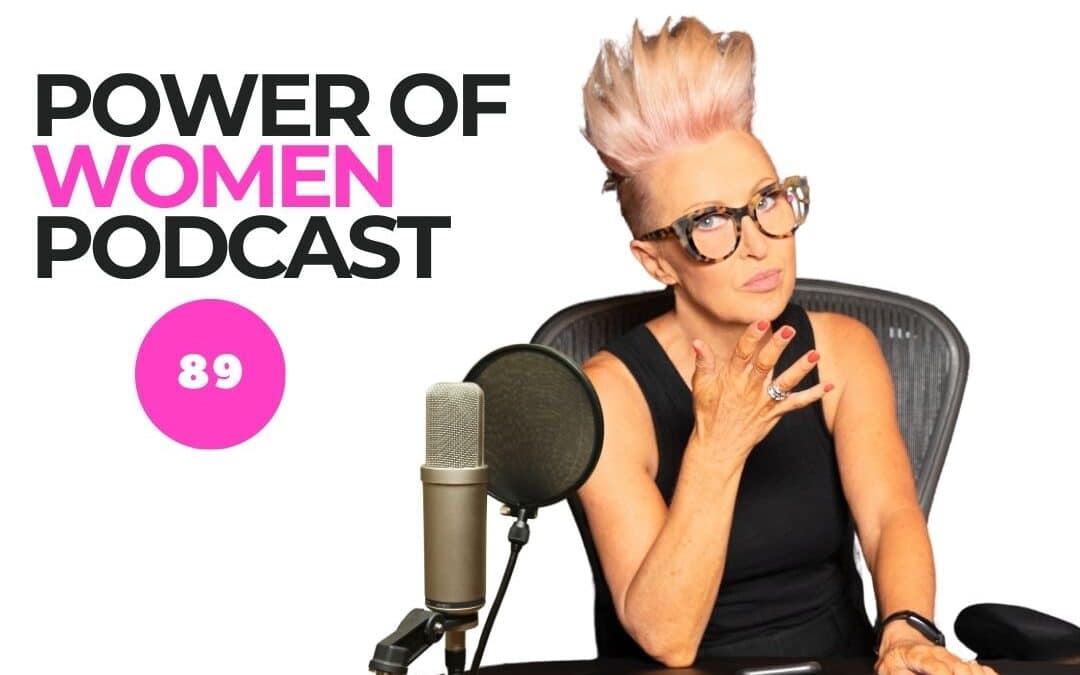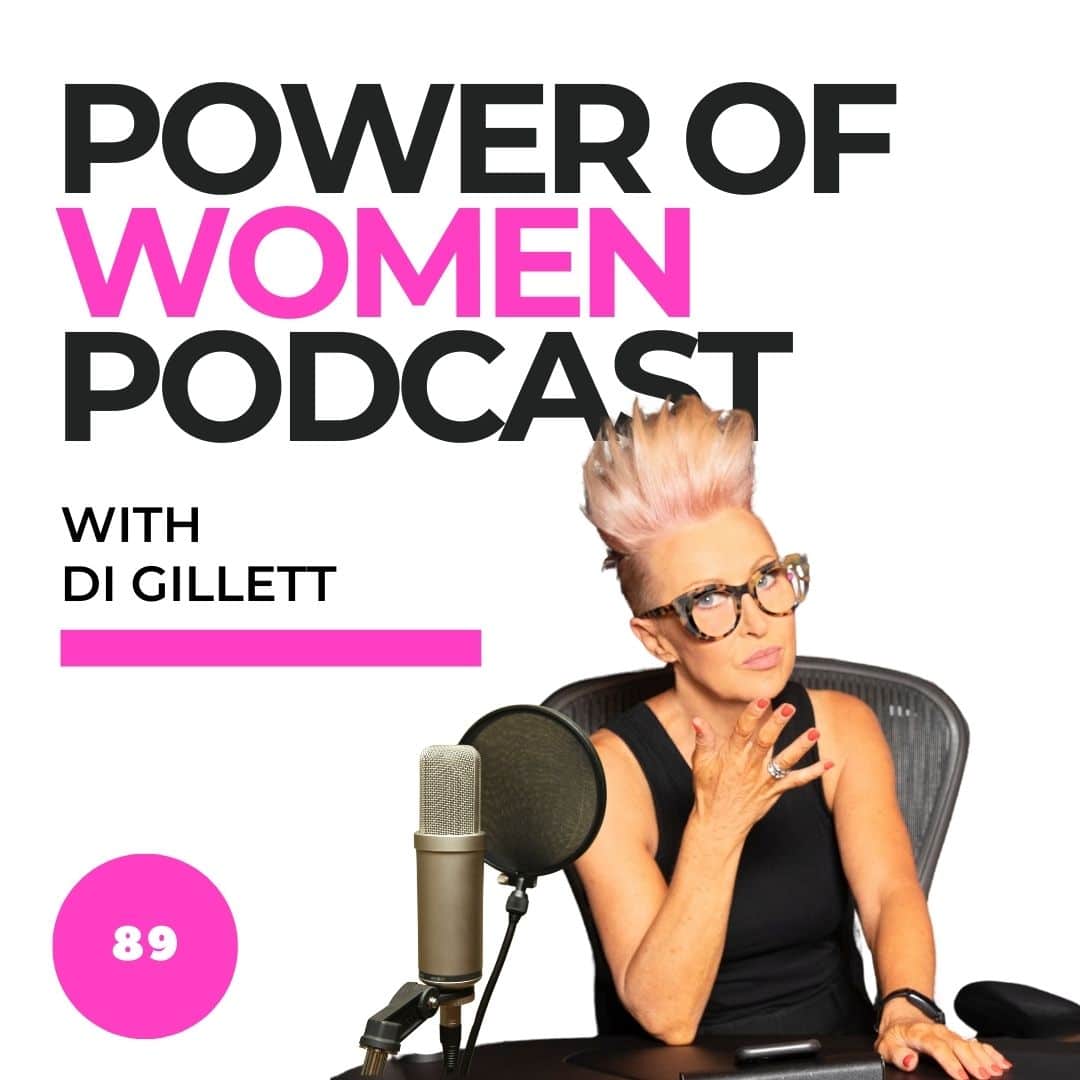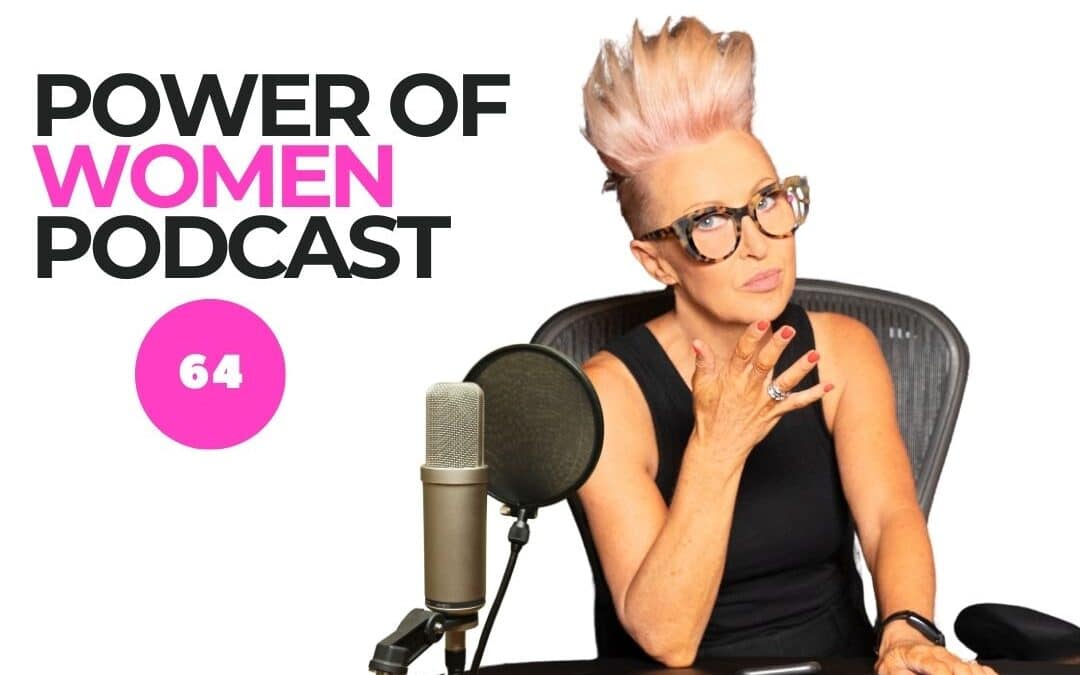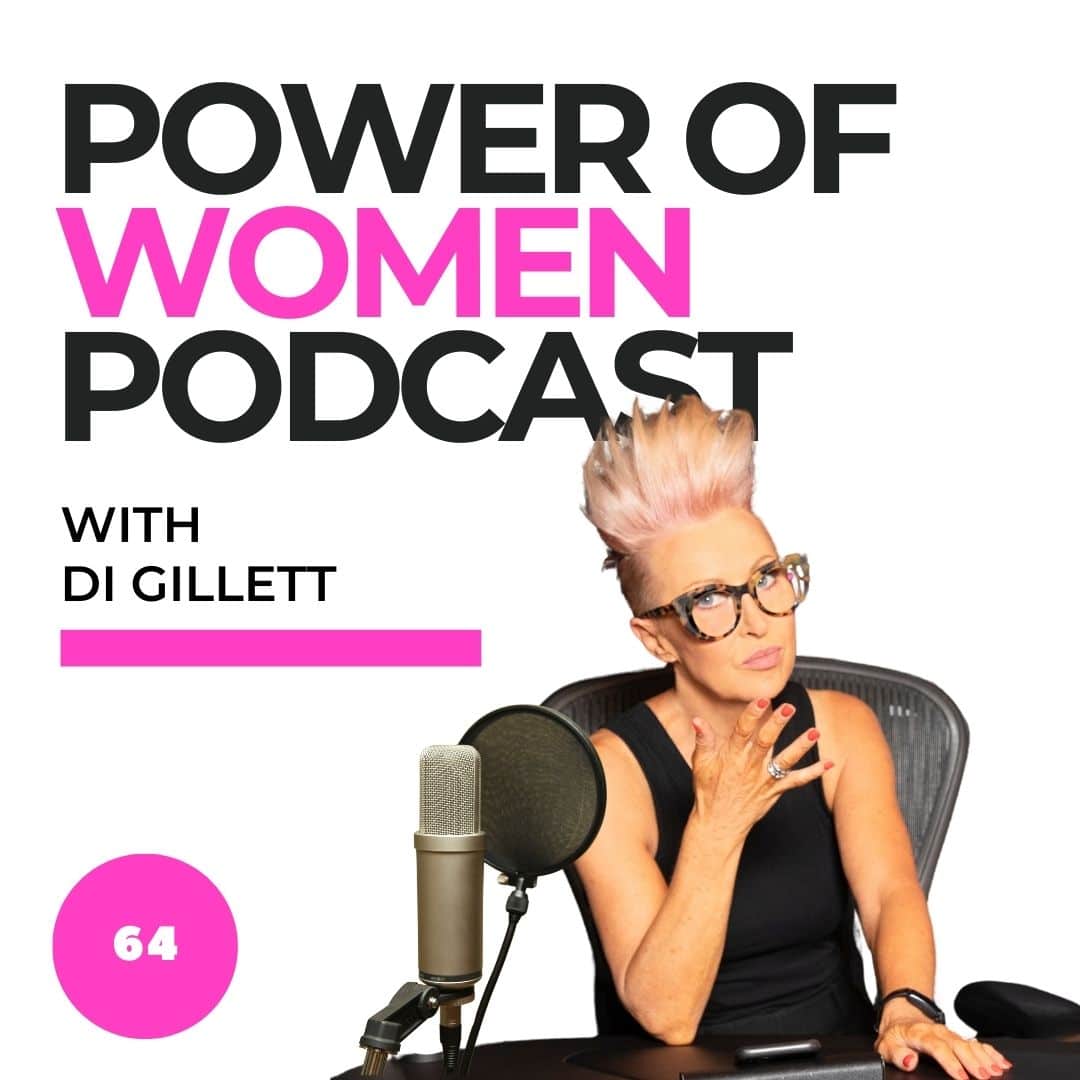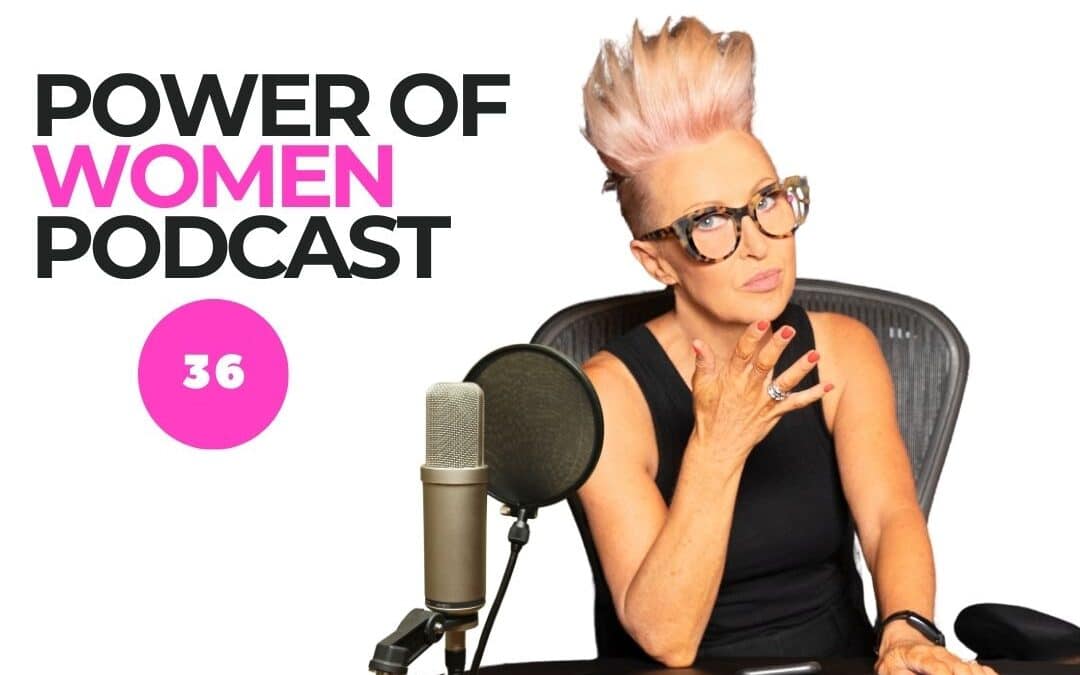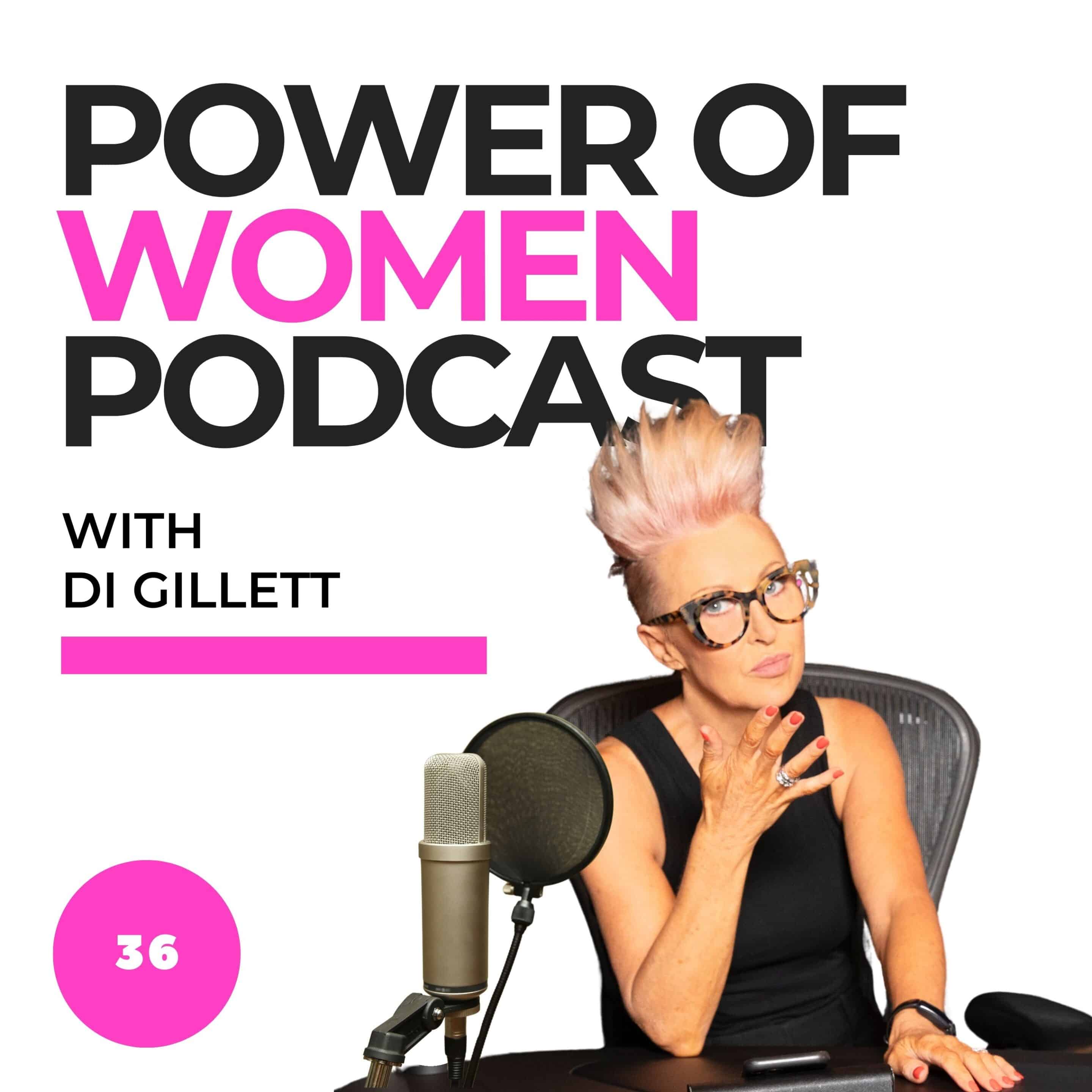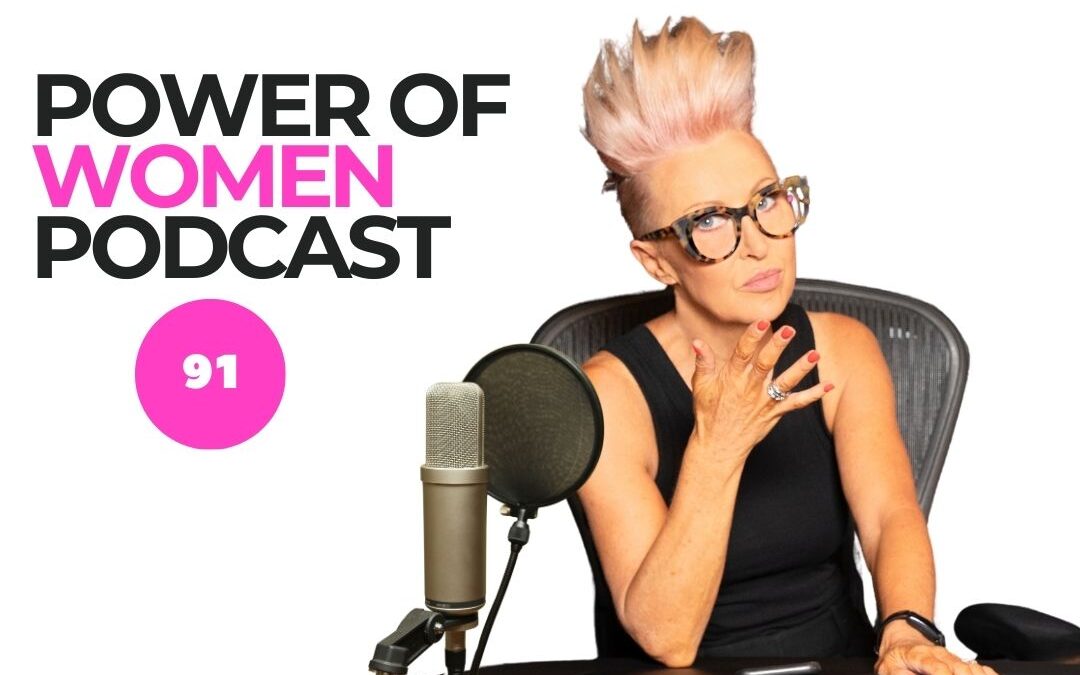
From Setback To Comeback
What happens when the drive that makes you great becomes the force that brings you undone?
Life coach, bestselling author and keynote speaker Shannah Kennedy joins me, Di Gillett on the Power Of Women Podcast to explore the thin line between ambition and burnout, and why recovery, identity and self-awareness are now critical skills for high-performing women.
From managing elite athletes to living at full throttle, Shannah’s story is a reminder that setbacks can be the start of your greatest comeback. If you’re willing to do the inner work.
In this episode, you’ll hear:
➜ Why “Who are you without your job?” is the most confronting (and necessary) question you can ask.
➜ How to rebuild your identity beyond titles and achievements.
➜ The difference between ambition and overachievement.
➜ Why women in midlife face “the perfect storm” — and how to plan your way through it.
➜ Daily rituals for resilience: mindfulness, breathwork and boundaries.
Shannah said:
“Setbacks are inevitable.”
“The line between ambition and breakdown is when you stop listening to your body.”
“Treat yourself like a high-performing human because that’s what you are.”
💥 New episodes drop every Monday to power your week.
📖 Read the full transcript of this conversation here:
SHANNAH KENNEDY (00:02)
Well the first thing is who are you without your job? And if you can’t answer that, it’s pretty confronting. ⁓
DI GILLETT – Host (00:09)
We’ve had a setback and setbacks are inevitable. They come in all forms. It could be we’ve been made redundant, our marriage or relationship has fallen over. We’ve had a health episode that’s knocked us sideways that we didn’t see coming or there’s been a loss of somebody in our world.
SHANNAH KENNEDY (00:29)
So you need to do the work on yourself first and when you have a big curve ball, if you’ve gone through a divorce or a redundancy, you have fallen flat on your bottom and you really need to do the work. And so all of a sudden the achievement junkie is so shocked at what just happened that they come to people like me and say, okay, teach me.
we go into, you know, what are your values? Let’s build the human now from the ground up so that you can jump back on and go and get another great job or enter another relationship or move forward with your health. We need to reset yourself. So where are the boundaries? What are the goals? What are the habits that are non-negotiable for you now moving forward that really serve your own set of values? And then you need to say yes to the world.
The line between ambition and breakdown is when you stop listening to your body. The question is never why me, but more who will I become because of this? A really important question to be asking ourselves in change. Women in midlife are facing the perfect storm. Without a plan, it can break you, and with a plan, it can make you.
DI GILLETT – Host (01:57)
I’m Di Gillett and welcome back to the POWER OF WOMEN podcast. What I love about this platform is the opportunity to showcase and celebrate the strength, resilience and achievement of women from all walks of life. And we talk resilience, reinvention and the moments that don’t make the headlines but in fact should.
So the conversation today is a really important one and I know this is going to resonate with so many of you listening because today we’re going to explore how to turn setbacks into comebacks. And joining me to discuss this and how we approach it is one of Australia’s most respected life coaches, a bestselling author, and we’ve got a couple of the books on the table with us today, keynote speaker,
and mentor to athletes, CEOs and high performers. Shannah Kennedy, welcome to the Power of Women podcast.
SHANNAH KENNEDY (02:57)
Thank you for having me. It’s beautiful to be here.
DI GILLETT – Host (03:00)
Shannah, before we start, I’d like to get into a little bit of your origin story because I think you’ve had your own setback that really framed what your comeback would be. Could we start there? Because you had a high-flying career as a sports manager and somewhere along the line you hit the wall. What happened?
SHANNAH KENNEDY (03:24)
I certainly did. I don’t know if any of the listeners out there have married their job before, but that’s what I did. ⁓ I was in my 20s. I had the most incredible job. was the full Jerry Maguire job. You know, there was athletes. I was working for a wonderful brand. My job was to buy and sell the athletes, to do all the sponsorship deals.
Sport is always on the weekend, so great. Every weekend was full, flying around watching sporting events, but never took any time off. So basically, full-time marriage into the job, loved it. Had a lot of friends because I had lot of free passes to places. I had a lot of free things to give away and a lot of money to give away. So my life was really superficial.
although I didn’t see that at the time, it was just full excitement. Sort of like if you are an elite athlete, things aren’t quite normal. And anyway, I just did not see the warning signs. I did not want to see the warning signs. So, you know, when your body starts to talk to you and you get the headache, you get the sore bones, you’ve got to force yourself to go to work a little bit.
DI GILLETT – Host (04:38)
Explain it away though, that’s the trouble.
SHANNAH KENNEDY (04:41)
Yeah,
you do. You create great stories to support yourself and your sabotaging lifestyle. I was also trying to do triathlons myself. I was trying to have relationships and everything was just crumbling around me until one day I just couldn’t get up. I actually could not get through the concrete. And I was diagnosed with chronic fatigue and that was 30 years ago.
DI GILLETT – Host (05:08)
Yeah, and we don’t talk about that a lot, but it was something that so many people hit through HSC studies and those sorts of things. So how long did that…
SHANNAH KENNEDY (05:21)
That
was full adrenal burnout. That was a year in bed, a year. A year in bed. Not able to drive, can’t concentrate, can’t turn the lights on, it hurts my eyes. Couldn’t turn the radio on or the TV on because it would hurt my ears. Everything was just fried. Think of everything being fried. Then the huge realisation was, who am I without my job? There was no emails. There was no phone calls.
DI GILLETT – Host (05:26)
Yeah
SHANNAH KENNEDY (05:49)
There was nothing. There was silence. The company were great. They held my job. But it was a horrible realization that I actually hadn’t created a person who went to work. I just created my title. So I was actually lying there thinking of our elite athletes and what happens to them when they go from hero to zero, sometimes overnight, you know, when they do their ACL or they get dropped from the team or.
Who is Dusty Martin without Richmond Football Club?
DI GILLETT – Host (06:20)
Nobody
seems to care about the person, they care about what impact it has on them as a fan.
SHANNAH KENNEDY (06:26)
Exactly. But we need to be a person first who plays football for that team or goes to that job and then gets off that ride and is still a full person. So it was a real gift in the end because I actually in that time really thought about all of the athletes that I had worked with. I saw all of the destruction post sport, which nobody cared about back then because it was the early 2000s.
Well-being wasn’t a word, mental health was not a word. It was go hard or go home. So I actually got myself a coach ⁓ to coach me back to unlearn all of my bad habits, to unlearn the I need to use hard work as a badge of honour and relearn a much more sustainable way.
of being a high performer without the burnout and having a life as well. So it’s a very exciting time, even though very challenging, incredibly painful chronic fatigue. Your bones are like broken. It feels like you have had the biggest night on the town.
DI GILLETT – Host (07:27)
What does it feel like?
without the fun.
SHANNAH KENNEDY (07:34)
without any fun. It’s like the worst hangover but also your bones feel like they’ve been punched so it feels bruised so it’s extremely painful. I don’t think people talk about that very much. It’s not just I’m a bit tired, So that ended up in a big depression because I actually didn’t know who I was.
DI GILLETT – Host (07:49)
No, it’s more than that.
You lost your identity.
Ouch.
SHANNAH KENNEDY (07:59)
Yeah, at 30. At 30. That’s early. That’s early to have a crisis like that.
DI GILLETT – Host (08:05)
Indeed it
- And that overachievement junkie pursuit which you would have had, and you would have been surrounded by people with that because they were high performers and killer instincts and strive to win and wins the only thing. And you would have had it in your DNA because you were competitive sporting wise in your own right.
So how much of it was about being an overachievement junkie and how often do you see that in the people that you coach now?
SHANNAH KENNEDY (08:42)
Well, I still see it in myself. I think it is. And I think if you are a driven woman and you have that achievement, you know, I’m not happy unless I’m achieving sort of mentality, it doesn’t go away, but you can make a healthier version of it.
DI GILLETT – Host (09:00)
That was going to be my question because what makes you great is what brings you undone. So how do you balance that?
SHANNAH KENNEDY (09:06)
There’s
a balancing act. So now my achievement is not, did I sell 10,000 books yesterday? Although that’s very nice. It is, what did you do to care for the asset which is yourself? So that she doesn’t burn out, so that she does have balance. Did you set a boundary? Did you do your breath work? Did you do the three M’s to start your day, which is make my bed, move my body, mindfully breathe? Do the pacing stuff.
Did I do three breaths every time I wash my hands today? That paces me through the day so I don’t burn.
DI GILLETT – Host (09:43)
You’re that, you’re doing that every day. And I did that before we started recording this morning. So I did the three, four, five breathing just to centre.
SHANNAH KENNEDY (09:45)
Yeah,
center. So that’s athlete mentality. I mean we watch it all the time. We’ve just watched the grand final. We see people breathing. We see Olympians just preparing themselves with breath. Breath is your first skill to go and really master. So I see it as the Gatorade stations in the marathon of the day. So every time you do that conscious breathing you ⁓ just give yourself a moment to ground yourself.
That’s like stopping at the Gatorade station before you carry on for the next 5k’s of the day. I teach a lot of my clients, especially women, how to pace themselves because they are trying to do everything all at the same time.
DI GILLETT – Host (10:40)
And particularly midlife women because that sandwich generation piece of you’re managing all ends of the spectrum. Yes. Coming up behind you, those who’ve gone before you.
SHANNAH KENNEDY (10:51)
Yes, and we’re in a crisis at the moment because women have never been in this position before. We’re actually at the top of our careers in our mid-50s. We’ve really got to partner. We’ve developed incredible businesses. Unfortunately, we had kids later, so our kids are still at home. They haven’t gone. And our parents are still with us because they’re living longer. And at the same time, our body is changing.
DI GILLETT – Host (11:12)
Incinerate
SHANNAH KENNEDY (11:19)
It’s a perfect storm and it hasn’t been there in any other generation. Because the generations before, the grandparents didn’t live as long. The kids moved out at 20. Now they’re staying home. ⁓ And by the time you’re in menopause, your career was sort of finished. So we’re in really uncharted waters. Yeah, it’s an interesting But I think it’s exciting.
DI GILLETT – Host (11:41)
So with that in mind, are the majority of your female clients midlife women?
SHANNAH KENNEDY (11:49)
No, I have women, men, I have retiring men, retiring women in their 60s, 70s. I have young people in their 20s starting. And everyone wants a plan.
They haven’t got a plan. So if you haven’t got a plan, it’s like driving around the roundabout. When you have a plan, it’s like, we know which direction we’re driving on the GPS. So even if it’s a short-term plan, the brain is really comfortable as soon as it knows where it’s going. So we do need a plan, which we plan in pencil, because there’s always change. We need to get comfortable with change. ⁓ And when you do have that plan in pencil, you can enjoy the ride.
DI GILLETT – Host (12:31)
That point about pencil is a fascinating one because I still keep a day book as a running sheet of what I’ve got to do. ⁓ And I love writing. I have a creative style of writing that comes from my fashion design background and I physically like writing. And for years I always used a beautiful Lamy pencil because I could
change it and it’s only in recent years that I’ve actually moved into writing with a rollable pen and I wonder whether there’s a conscious switch in going from pencil can change it to feeling clear enough that I’m going to put it down in pen and stick with it.
SHANNAH KENNEDY (13:18)
think pen is amazing. I think pencil is for long term. So if we’re thinking about your 10 year older version of yourself, which is your role model, of course, is you, your best friend in 10 years time. You put that age to it, so I’m 55, so I’d be 65. So I would be planning in pencil because I don’t know what curve ball is coming my way. But I’m planning in pencil on, you know, what are the life experiences that I want.
What experiences do I want with my husband, with my kids, with my friends, all different ones? I might be planning in how I want to feel. More agile, stronger. Okay, what can I do today? Where do I want to be financially so I know what I need to do today and why I’m not going to go to the sale and buy some more towels because we’ve got enough towels just because I really like them or more stationary because I love stationary. I’m serving her.
I am serving her, I’m working for her, that’s my life plan. So I know why I make decisions today is for her because I don’t feel like going for a walk when it’s cold and windy here in Melbourne, but I’ll get up and go for her because she’s saying thank you, keep moving, keep moving or get to yoga, I want you to be agile. So I have this trainer in my brain who is to me
DI GILLETT – Host (14:37)
speaks to you in third
SHANNAH KENNEDY (14:40)
from my life plan because this is how I want to feel and this is what I want to experience and this is what I want to learn.
DI GILLETT – Host (14:50)
And I’m thinking what you said, and I think it was after turning 60 that I probably went from pencil to rollable pen. I wonder whether there was something in that.
SHANNAH KENNEDY (15:02)
Well, deep confidence comes when we know which way we’re going and how we want to feel and what we want to experience. That’s confidence. Because you’re living your plan, not somebody else’s plan.
DI GILLETT – Host (15:14)
I think I just got analysed on the
So you talked about your own setback being a gift and it was a turning point for you. So for those listening who are in the middle of a hiccup or a setback, how can they start to see the hidden opportunities in what feels like a crisis?
SHANNAH KENNEDY (15:45)
It always feels like a crisis. It’s like you just fell off your bike. It’s a crisis. It hurts. It’s horrible. You sit there. Your confidence is completely stripped and you’re sitting in the gutter and it’s a horrible place to be. And the first thing we need to do is breathe. The first thing you do to a child is catch your breath.
We’re not going to talk about it yet. We’re going to catch your breath. Ground yourself. Okay, now we’re going to slowly stand up and then we’re going to make a plan and we’re going to jump back on the bike. It’s the same. We need to go through a beautiful process and not just react. We need to ground ourselves first. We need to think about how that felt.
What am I learning from this? And the learning might not come till later. Certainly in the middle of chronic fatigue, I did not think it was a gift. But it opened doors for me that I would never have seen. It’s also allowed me, or I have chosen to see it as the gift to live wide awake and with intention. So mindfulness, breath work, all of those soft skills, which I did not possess before I had to bring in, and they became the guide.
Like taste the coffee. I’m so happy I have a bed with a doona. You know, I’ve got a car that works. Let’s go down to the little things. And so I actually feel like I’ve had a very grateful life because I’ve focused on the small things.
DI GILLETT – Host (17:12)
What would be the difference do you think had you not hit the wall if you’d kept going?
SHANNAH KENNEDY (17:17)
Well, it isn’t until you lose everything.
friends, your so-called friends, your identity, your body, that you appreciate small things. So I think if I hadn’t I would still be the A-type overachieving junkie who probably would have blown up her marriage and not felt anything and not been present for her children or maybe not pivoted the right way and just reacted all the way along like a bouncy ball and probably got to midlife ready for a massive crisis.
DI GILLETT – Host (17:49)
And that’s probably what we see with a lot of these relationships and characters who blow up. You know, it’s the guy going and getting the sports car. It’s the marriage breaking up at 50 when you think you should just be settling in and starting to plan post-children and enjoy yourself. It’s all of those things coming to that crux.
SHANNAH KENNEDY (18:15)
It’s
always the people who haven’t done any work on themselves. So they have been addicted to achievement the whole way through. They have maybe got to partner or had a great career, but everything around them.
is incredibly unstable. again, they put all of their eggs into their title and didn’t build the human. And that’s why we need a life plan, which brings in a career plan and a financial plan and a health plan, but it’s actually your life. How do you want it to unfold? Get in the driver’s seat and out of the passenger seat. So a lot of them, I think, have just been maybe just too one-eyed and it’s just life is not like that.
DI GILLETT – Host (18:57)
I think that’s right. Well coming up, what to do when setbacks hit and how to manage your comeback. If you’re loving the POWER OF WOMEN podcasts, be sure to jump onto our YouTube channel and hit that subscribe button to ensure you never miss an episode.
Shannah, before we went to a break, you made a really interesting point. You said we put all of our energy into our title and not into us as a human. How prevalent is that in the marketplace?
SHANNAH KENNEDY (19:34)
enormous because that’s where a lot of women value themselves and their confidence. They don’t value the small things, they only value the title. And when the title is taken away, what’s left? We need to have built the human being who gets on the ride, whether that be at Macquarie Bank or
the business that they’ve built, it doesn’t matter what it is, but you need to be able to step off and be the human. It’s just a ride. It’s just a ride in the playground, your job.
DI GILLETT – Host (20:06)
So how do you take somebody on that journey to draw the distinction? Because if I’m an achievement junkie and my title of partner has been the pinnacle of my career, I’m there, it defines me. How do you encourage me to think of me as an individual in the bigger picture?
SHANNAH KENNEDY (20:27)
Well, the first thing is who are you without your job? And if you can’t answer that, it’s pretty confronting. So that’s when they say, okay, I’m open to working on it now, because they can’t answer that one question. And it’s a really important question is to know who you are and what’s important to you outside of your job. And what are you doing to feed that consciously, consciously?
DI GILLETT – Host (20:52)
So we’ve had a setback and setbacks are inevitable. They come in all forms. It could be we’ve been made redundant, our marriage or relationship has fallen over. We’ve had a health episode that’s knocked us sideways that we didn’t see coming or there’s been a loss of somebody in our world. What’s the non-negotiables in a recovery plan to come back from one of those setbacks?
SHANNAH KENNEDY (21:20)
Well, that’s why I wrote Plan B. Because it was about navigating and embracing change. And after 20 years of coaching people through change, I thought, I’m just going to put it into a simple format for people. For what happens in your brain is we get the curve ball, it comes, it’s lemons, it hurts, it’s falling off your bike, it’s the redundancy, it’s, ⁓ you know, I had a cancer diagnosis, ⁓ my partner passed away, or my…
mother passed away or it just can be a range of things you know a business partner blindsided you. The first thing that we have to do is just respond and we can’t respond until we’ve taken a breath. We’ve acknowledged all of our feelings. We’ve created a narrative that works for us to tell other people when other people corner us what happened with your marriage you know.
You want to shut that down pretty quickly because that goes into a whole rabbit hole. So you have to have your elevator pitch ready. ⁓ And then you just respond with grace. You just respond with grace. Then you need to recover. So we need to take the time to recover. We need to think about,
What are the self-care things that I need to do to just refuel my tank, whether it be physically, mentally, emotionally, spiritually? We need to take a little time, a little gap, instead of just jumping straight back on the bike, a little gap to…
DI GILLETT – Host (22:48)
Achievement
junkies. So how do you encourage me not to go? I’m just going to get back into it and keep busy.
SHANNAH KENNEDY (22:55)
So you need to do the work on yourself first and when you have a big curveball, if you’ve gone through a divorce or a redundancy, you have fallen flat on your bottom and you really need to do the work. And so all of a sudden the achievement junkie is so shocked at what just happened that they come to people like me and say, okay, teach me.
So that’s where we start. And once we’ve done a bit of recovery and we’ve had a bit of time off and we’ve just settled ourselves, we go into, know, what are your values? Let’s build the human now from the ground up so that you can jump back on and go and get another great job or enter another relationship or…
move forward with your health, ⁓ we need to reset yourself. So where are the boundaries? What are the goals? What are the habits that are non-negotiable for you now moving forward that really serve your own set of values? And then you need to say yes to the world. Yes, let’s radiate again. Let’s come, jump on the bike. Let’s take off again and have another go. But there’s quite a process to get there. And the people that don’t go through those stages,
⁓ always fall again and again and again.
DI GILLETT – Host (24:15)
And is that what your personal coach took you through when you hit the wall? And how long do you think the reset took?
SHANNAH KENNEDY (24:19)
Mmm, 100%.
I would say at least two years. And then I studied coaching to open my own business to coach athletes into retirement. That was before anyone had heard of a life coach. So think I was one of the first qualified ones in Melbourne 25 years ago. And it started with athletes, then it went into business athletes, I call them, and then life athletes.
DI GILLETT – Host (24:51)
And I get that I come from a family of elite athletes and my brother was an elite athlete and he tragically lost his wife Amy Gillett when the Australian cycling team was struck by a car in Germany. Why I tell the story in this setting is Simon was still thinking like an elite athlete in his approach of how he was going to manage his grief. And I can remember him.
going hard, keeping busy. He was flying here, he was flying there, he wasn’t acknowledging what had happened. And then out of the blue, he got the hiccups. And I don’t mean an occasional hiccup, I mean 24-7. You can’t eat, you can’t drink, you can’t sleep. The hiccupping was constant. And after about five days, he was broken. Absolutely.
broken, his body took over. So it’s, isn’t it interesting as to how if you don’t take the decision, the decision like your chronic fatigue for you.
SHANNAH KENNEDY (25:51)
His body took up.
Yeah, your body will take over.
Absolutely. And the grief cycle is huge. And it can last forever. Forever. doesn’t go away. So I put that in the book as well. we don’t get taught all of this at school. No. We don’t get taught anything at school except get a great ATAR and go to university. And that’s it. Full stop.
DI GILLETT – Host (26:24)
Do you
SHANNAH KENNEDY (26:28)
Yes, 100%. I think they are bringing wellbeing in now, is great. It’s a small introduction. But a lot of these life skills, if you’re not a reader or I suppose now it’s much easier listening to podcasts, you can learn these skills. That was never around before. Nobody talked about all of this before. Grief was shoved under the carpet. Don’t go near that person. ⁓
the book was written in COVID, it came to me at two in the morning, like a Jerry Maguire moment, and I just got up and went, know the exact pathway.
DI GILLETT – Host (27:06)
And
so Plan B was your first… Number six. But the context.
SHANNAH KENNEDY (27:08)
book. No, that was number six.
The
context of it. Yeah, exactly.
DI GILLETT – Host (27:16)
Brilliant. So for a high performer listening to this podcast, what are some really practical strategies for them to prevent the next crash and to build a more sustainable comeback?
SHANNAH KENNEDY (27:28)
Beautiful. think especially for women who are listening to this, is, you know, we are these incredible human beings. We really are.
DI GILLETT – Host (27:41)
If
we don’t say so ourselves.
SHANNAH KENNEDY (27:43)
Yeah,
and I’m just going to shout that from the rooftop. We are incredible human beings and we need to protect the ascent. We need to put kid gloves around ourselves a little bit and listen to the body because the body will take over otherwise and things happen to us. So we do need to think about filling the oxygen tank before the mask. We do need to think about if I’m going to be a high performer like an athlete, I need to have high performance recovery.
And athletes do. They have incredible recovery protocol. We need to as well. And making that your part of your career is what is my recovery. You know, for me, it’s massage, acupuncture, Chinese herbs. It’s constant. It’s been going for 25 years with no burnout. Raising the family, looking after the parents, writing books, traveling the country, speaking on stages and coaching people.
DI GILLETT – Host (28:39)
No
burner.
SHANNAH KENNEDY (28:42)
None. My recovery is so important to me. So important. I will go and have a 20 minute sleep in the middle of the day.
DI GILLETT – Host (28:50)
because you can
read when you need to do it and you can respond rather than…
SHANNAH KENNEDY (28:54)
You know, back-to-back presentations, for example, I will book a boardroom and go and lie down with my legs up the wall for half an hour. Yeah, there you go. treat yourself like a high-performing human because you are one. And high-performing humans and athletes really focus on recovery, just as much as performance. And that could be your rest protocol, your sleep protocol. Your exercise protocol. know, the way you move, the way you hydrate, the way you fuel your body. ⁓
treat it like an elite athlete because that’s what you are. You are managing so many different areas in life and everybody needs you.
DI GILLETT – Host (29:32)
Yeah, that’s great advice. Thank you. What’s the most significant challenge women are facing today and what do we need to do about it?
SHANNAH KENNEDY (29:41)
I think there’s two. One is we’re in the crisis of ⁓ managing so many different areas of life all at the same time. Menopause, adult children, aging parents, top of our career. It’s enormous. I think it’s a huge load that women have never had before. ⁓ The other one is comparisonitis. I think social media.
It actually is destroying a lot of women’s confidence where they don’t feel seen, they don’t feel heard. They’re comparing themselves to someone else’s shopfront, which might not be like that behind the scenes. And it’s really affecting their confidence. And so they are feeling a little invisible maybe because they’re distracted. It’s like if you’re in a running race and you’re running perfectly well and you start looking sideways.
What happens to your run? You lose momentum. So every time we’re stuck in comparisonitis we’re losing momentum. And I think it’s a huge problem at the moment, especially while we’re in the whole storm of managing everything else.
DI GILLETT – Host (30:51)
That’s such an important word. I’ve heard it said recently and it’s relatively new to my vocab, but that is such an incredibly powerful one.
SHANNAH KENNEDY (31:04)
Comparisonitis
DI GILLETT – Host (31:07)
hard to say.
SHANNAH KENNEDY (31:08)
Very hard to say, but think of it as an athlete. If an athlete is comparing themselves to somebody else, they’re always going to feel.
If they’re focused on themselves and their 10 year plan, they’re going to be excited, motivated, pumped and looking for new people to bring in to surround themselves with the right people. The minute we’re looking sideways we lose all momentum. So I think social media you have to have a boundary on.
DI GILLETT – Host (31:40)
So if I think of that as a term, I think that’s probably a term that derailed me in my 30s and didn’t really stand into my own power until in my 40s because I had a couple of powerful friends around me and I was living vicariously through them, not being true to myself. So I think that is a…
The existed long before social media.
SHANNAH KENNEDY (32:12)
⁓ it did, it did. And that’s why people need a plan. If you have your own vision board up and your own words up on the mirror that really work for you and you are solely committed to enjoying your life, not someone else’s, your life, how can I make today great for myself? What can I be grateful for? What’s my challenge today? Can I breathe today? Did I move my body today? Did I do all the things to serve this asset?
Life’s pretty exciting.
DI GILLETT – Host (32:43)
Yeah, brilliant. Shannah, thank you I am going to start putting more emphasis on me as the asset rather than me being the last down the line. Good idea. think that’s a must. How can somebody find you if they’re looking to engage yourself?
SHANNAH KENNEDY (33:00)
Amazing. Well, that can go to my website, shannahkennedy.com. There’s lots of free resources, free screensavers to keep you on track, free downloadable vision board kits so that you can start your own vision board. Fantastic. All on the website. yes, I do one-on-one coaching. I do workshops for corporates.
DI GILLETT – Host (33:13)
and a number of these books that you
busy and you’re not burning out. Well done, you. Fantastic. Well, I think that is such ⁓ a truckload of messages that Shannah has delivered today. But I think if we do take the approach of treat ourselves as the asset, rather than the inevitable that can keep pushing, keep pushing, keep pushing, and we’re not breakable, because that would be wrong. are in fact likely to burn out, to
to exhaust ourselves, to run ourselves down, and nobody, including ourselves, are going to benefit from that. And I know I have been guilty of it. I’m sure you have been guilty of it. So share this episode with a friend to make sure we treat ourselves as the asset we deserve. Until next time.
Connect with Di:
Follow Power Of Women on LinkedIn
The Power Of Women Podcast Instagram
Find Shannah at:
Website https://shannahkennedy.com/
LinkedIn https://www.linkedin.com/in/shannah-kennedy-8a898b1/
Instagram https://www.instagram.com/shannahkennedy/
Want more fearless, unfiltered stories?
✨ Subscribe to the Power Of Women Podcast on YouTube, Spotify, or Apple Podcasts
➜ Your ⭐⭐⭐⭐⭐star review on Apple Podcasts or Spotify keeps these stories alive.
📩 Sign up for our newsletter where I share raw reflections and thought leadership on the Power Of Reinvention.
Disclaimer: https://powerofwomen.com.au/podcast-disclaimer/

